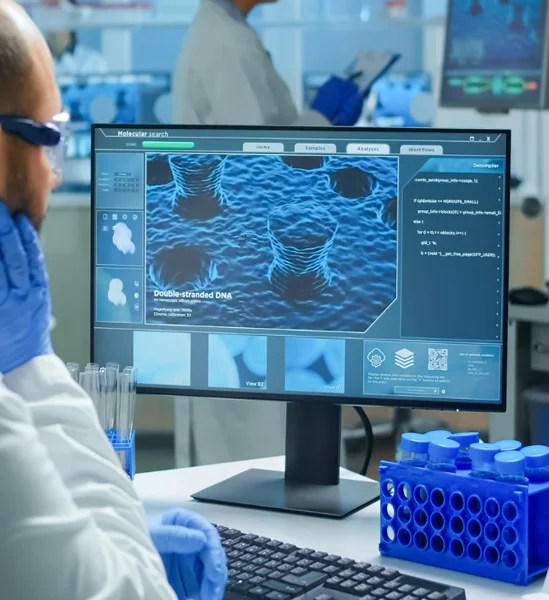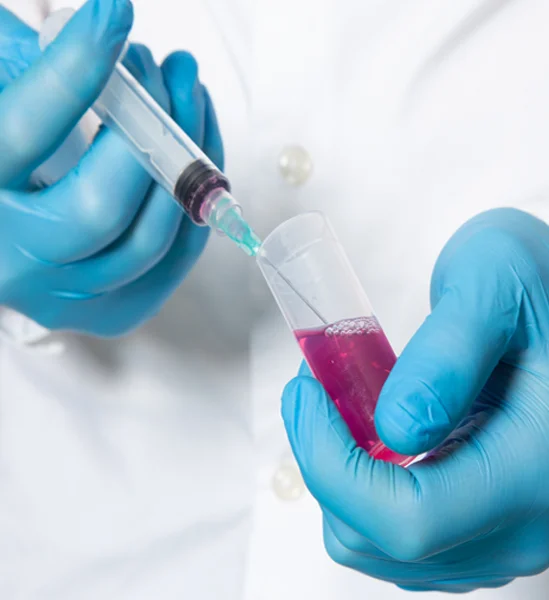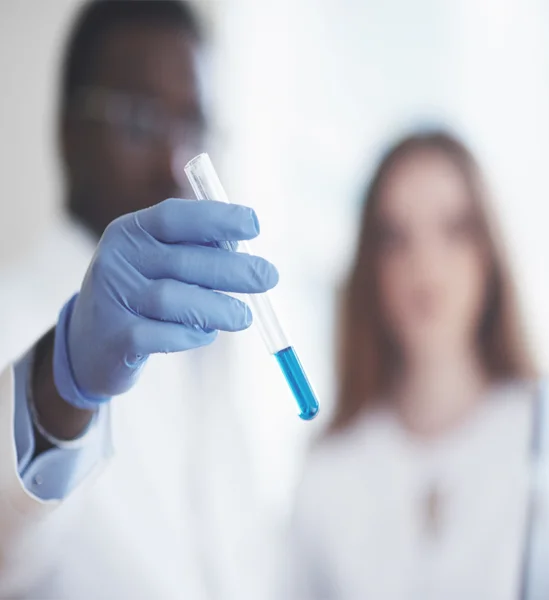DFI Test (SCSA®)
Advanced DFI Test Using SCSA® Technique for Male Fertility Assessment
About SCSA® DFI Test
The SCSA® Test or Sperm Chromatin Structure Assay is an advanced sperm DFI test for male infertility. Unlike regular semen analysis that only looks at sperm count, movement, and shape, the SCSA® Test checks the DNA quality inside the sperm. This helps in understanding male infertility better and planning treatment. The test mainly measures two things: %DFI (DNA Fragmentation Index), which shows how much sperm DNA is damaged, and %HDS (High DNA Stainability), which shows sperm with abnormal DNA packaging that could affect fertilization.

FOR THE FIRST TIME IN INDIA
GOLD STANDARD in Sperm DNA Fragmentation Tests
What is the SCSA® Test?
The SCSA® Test or Sperm Chromatin Structure Assay, is an advanced test for male infertility. Unlike regular semen analysis that only looks at sperm count, movement and shape, the SCSA® Test checks the DNA quality inside the sperm. This helps in understanding male infertility better and planning treatment. The test mainly measures two things: %DFI (DNA Fragmentation Index), which shows how much sperm DNA is damaged and %HDS (High DNA Stainability), which shows sperm with abnormal DNA packaging that could affect fertilization.
Read MoreHow the SCSA® Test works?
The SCSA® Test is the most thorough among the sperm DNA fragmentation tests. It’s unique because it measures both the level of DNA fragmentation and the structure of chromatin (DNA + Protein). This test is done with a laser-based device called a Flow Cytometer. We analyze the sample twice to make sure the results are consistent and accurate, using special software to ensure the reports are reliable.
Read MoreWho is the SCSA® Test for?
Many couples trying to have a baby go through various fertility treatments, which can be time-consuming, emotionally draining and expensive, especially when the treatments don’t work. The SCSA® Test for sperm DNA fragmentation can be very helpful. It assesses the quality of sperm DNA, helping to choose the best fertility treatment. Unlike regular semen tests that only look at the physical appearance of sperm, the SCSA® test examines the actual genetic integrity inside the sperm, which is crucial.
Read MoreBenefits of the SCSA® Test
The SCSA® Test gives clear information about male reproductive health. It helps choose the most suitable treatment, reducing the emotional and financial burden of trying ineffective methods. It helps answer questions about previous failed fertility treatments. Provides quick and accurate information on sperm DNA quality. Helps in deciding the best fertility treatments for couples, using detailed genetic information.
Read MoreHighlights of SCSA Test

2012
Founded in

32,000+
Tests Completed

200+
Fertility Centers

57
Cities Covered
Why SCSA Test?
SCSA Test (Sperm Chromatin Structure Assay) is a modern and reliable test that checks the health of sperm DNA, something regular semen tests often miss. If sperm DNA is damaged, it can lead to problems like failed pregnancy, IVF/ICSI failure or repeated miscarriages.
This type of damage is known as sperm DNA fragmentation, which is a key factor in many cases of male infertility. The sperm DNA fragmentation test, especially when done using the SCSA® method, provides accurate and clinically useful results. Andrology Center is the only approved lab in India that offers the original SCSA® test.
We provide fast, accurate reports and accept samples from across the country. Trusted by fertility experts, SCSA helps uncover hidden causes of male infertility and supports better treatment decisions, making it a reliable option for male infertility testing.


Who Should Have a Sperm DNA Fragmentation Screening?
Men with unexplained infertility
Couples with repeated IVF/ICSI failures
History of recurrent miscarriages
Men with varicocele (enlarged veins in the scrotum)
Men over the age of 35
Men exposed to smoking, alcohol, pollution or stress
Those with poor semen analysis results
Men with chronic illnesses or on long-term medication
After infections, high fever, or heat exposure (e.g., hot tubs)
Men working in high-radiation or chemical environments
SCSA® Test Resources
Sample Reports & Forms
The SCSA® or Sperm Chromatin Structure Assay report format is the same worldwide. The report provides the graphical representation on the…
Publications
The SCSA® Test is based on well-established research and methods. Since the inception of the SCSA® Test over 30 years ago, there have been numerous studies…
SCSA® Test FAQ’s
Make an Appointment Please fill in the form or call us on +91 944 379 3934 for more information on any of our services or to order the information for…
Our Male Infertility Tests
Our Center is a beacon of comprehensive diagnostic services specialising in SCSA® test, which is the GOLD STANDARD in Sperm DNA Fragmentation testing.
Frequently Asked Questions
The DFI Test measures how many sperm have broken or damaged DNA. A higher DNA Fragmentation Index shows more DNA damage, which may reduce the chances of fertility.
The SCSA test looks beyond sperm count, movement or shape—it checks the quality and integrity of sperm DNA. This provides insights into genetic health that routine semen analysis cannot detect.
Even if sperm count, shape and movement are normal, high DNA damage can still cause fertility issues. A sperm DFI test helps identify hidden problems that may be missed in basic semen tests.
A high level of sperm DNA fragmentation is linked to lower chances of pregnancy, poor embryo development and an increased risk of miscarriage.
Yes. Knowing the DFI Test result helps doctors decide the best fertility treatment. For example, when DNA damage is high, advanced methods like ICSI may improve success rates.
Generally, a DFI below 25% is considered normal, 25–30% is moderate and above 40% is high, which can significantly affect fertility outcomes.
Not always. The sperm DNA fragmentation test is often recommended in cases of unexplained infertility, repeated IVF failures or recurrent miscarriages.
The SCSA test is highly reliable because it analyzes thousands of sperm at once, providing consistent and repeatable results on DNA damage.
Yes. Factors such as smoking, alcohol, poor diet, stress, environmental pollution, infections, heat exposure and increasing age can raise levels of sperm DNA fragmentation.
The DFI Test goes beyond routine semen analysis by checking sperm DNA at a molecular level. This makes it one of the most advanced Fertility Tests for Men, helping design more targeted treatment plans.














